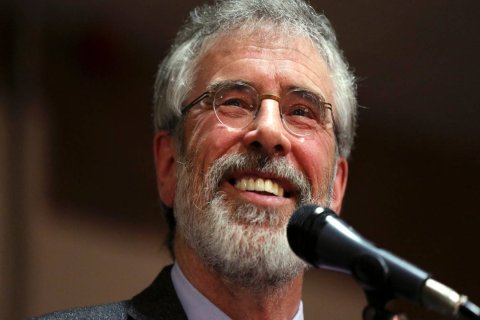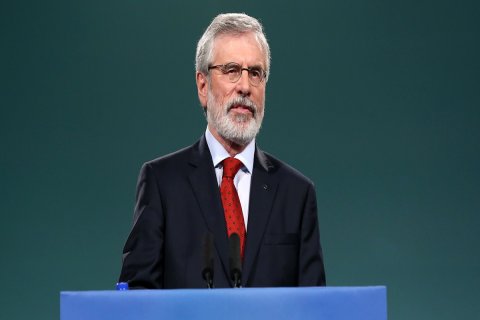Gerry Adams

Title: Gerry Adams: A Controversial Figure in Irish Politics
Introduction: Gerry Adams, a significant figure in Irish politics, rose to prominence as the leader of Sinn Féin, a political party associated with the Provisional Irish Republican Army (IRA). His involvement in the Northern Ireland peace process and his role in shaping the Good Friday Agreement made him a controversial yet influential figure. This article explores the life and career of Gerry Adams, shedding light on his political ideology, achievements, and the challenges he faced.
Early Life and Political Activism: Gerry Adams was born in West Belfast, Northern Ireland, on October 6, 1948. His father was a member of the IRA, and Adams grew up in a Republican household. He joined Sinn Féin at a young age and quickly became involved in the party's political activities. Adams gained prominence during the 1970s Troubles, a period of sectarian conflict in Northern Ireland. He was interned without trial for four years by the British government, which accused him of being a member of the IRA.
Leadership of Sinn Féin: In 1983, Adams was elected president of Sinn Féin. Under his leadership, the party adopted a strategy of political engagement, aiming to achieve Irish reunification through peaceful means. Adams played a crucial role in negotiating the Good Friday Agreement in 1998, which marked a significant milestone in the Northern Ireland peace process. The agreement led to the establishment of a power-sharing government in Northern Ireland and the decommissioning of IRA weapons.
Ideology and Political Stance: Gerry Adams' political ideology was rooted in Irish republicanism, which advocates for a united Ireland free from British rule. He was a strong advocate for the rights of the Irish Catholic minority in Northern Ireland and criticized the British government's handling of the conflict. Adams also supported socialism and campaigned for economic justice and equality.
Controversies and Criticism: Adams' association with Sinn Féin and the IRA drew criticism from various quarters. He was accused of supporting violence and terrorism, particularly during the early stages of his political career. Critics argued that his links to the IRA undermined his credibility as a politician. Additionally, some questioned his sincerity in pursuing peaceful means to achieve Irish reunification.
Peace Process and Achievements: Despite the controversies surrounding him, Gerry Adams played a significant role in the Northern Ireland peace process. He was instrumental in convincing the IRA to declare a ceasefire in 1994 and to engage in negotiations with the British government. Adams' commitment to peaceful resolution and his willingness to compromise were crucial factors in reaching the Good Friday Agreement.
Later Career and Retirement: Following the Good Friday Agreement, Gerry Adams continued to lead Sinn Féin and served as a Member of the Northern Ireland Assembly and the British House of Commons. He remained an influential figure in Irish politics, advocating for the implementation of the peace agreement and promoting reconciliation between the two communities in Northern Ireland. In 2018, Adams announced his retirement from active politics, marking the end of a tumultuous yet impactful career.
Conclusion: Gerry Adams was a complex and controversial figure who played a significant role in Irish politics. His leadership of Sinn Féin and his involvement in the Northern Ireland peace process left a lasting impact on the region. Despite the criticism he faced, Adams' commitment to peaceful resolution and his willingness to engage in dialogue ultimately contributed to the end of the Troubles and the establishment of a more stable and peaceful environment in Northern Ireland.







